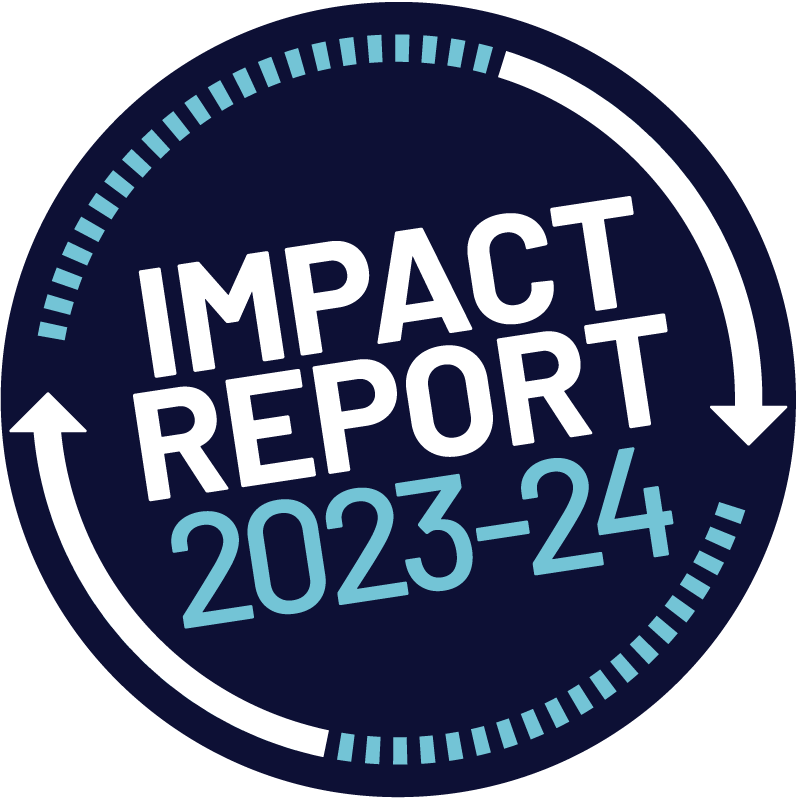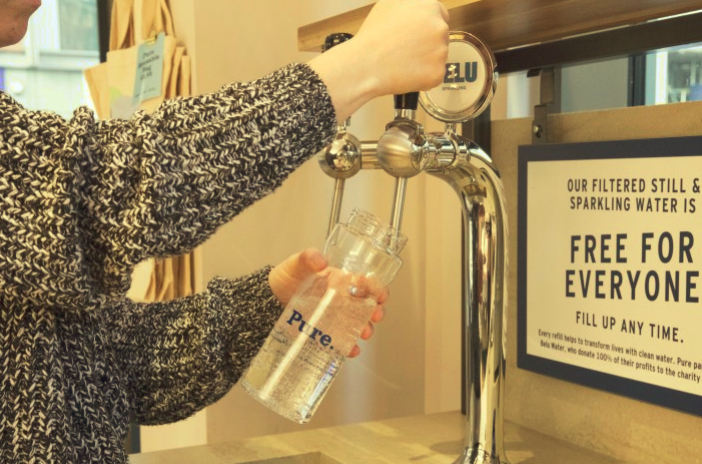

Belu publishes Impact Report 2023-24
Read Belu’s 2023-24 Impact Report here Today at Belu, on


This blog was originally published by Pure on their website on 04/07/2019
As a Belu partner, Pure have kindly given us permission to publish their thoughtful piece here on our site. The below is written in their words.
Last year, we published the article below on our website. As the questions about single-use plastic continues to grow, we have updated the article and wanted to share some more details with you. It is quite long as, unfortunately, in this debate there are no simple answers.
Being a sustainable business is hard. It is particularly hard for a business like ours where 98% of our food is taken away, so it needs packaging. Speed of service and convenience are key reasons for people shopping at Pure. We have to make food in advance for it to be ready for our customers (which creates food waste when we don’t get our planning right!). And balancing convenience for our customers with our responsibility to the environment is a huge challenge. We have worked very hard to make ourselves as sustainable as possible. The details of some of what we do can be found here.
But we get a lot of criticism for using plastic in our business, so we wanted to explain our reasons in more detail. We know we are on the wrong side of this debate in terms of public perception (we are not only against Hugh Fearnley-Whittingstall, but Sir David Attenborough!). We don’t pretend to know more about the environment than they do. But we also don’t want to pretend to do something which, we know from the information available, is not actually the solution.
We could change our packaging to be compostable to make ourselves look better. But we are more interested in doing the right thing than what is perceived to be the right thing. We believe in compostable packaging in the long-term. But, at the moment, if a company is using compostable packaging without the ability to have it collected and processed – and claiming it is more environmentally friendly – they are being disingenuous.
But the type of packaging is only one part of this process. Like most companies, we have a three-stage approach to managing our impact on the environment:
On reduction and reuse, we are the market-leaders in reusable cups with more than 12.5% of our customers buying hot drinks from Pure in this way. All of our teams also have their own reusable cups for hot drinks and water. Companies that are using compostable cups and charging their ‘normal’ price are, in our view, not doing everything they can to reduce packaging. We know the right thing to do is to reduce and reuse, which is why we give 50p off for anyone buying a hot or iced drink with a reusable cup. We are on-track to save at least 350,000 cups in this year alone and are incredibly proud to be leading the way. Reduction and reuse is far better than single-use of anything.
And if you have visited a Pure (you may even be reading this in a Pure right now!) you will also know we have free, self-service Belu still and sparkling filtered water stations for everyone. We estimate that at our present run-rate, we save at least 3,000 plastic water bottles a week or an eye-watering 150,000 plastic water bottles every year, by providing free water. The positive impact we are having will grow substantially as we open more shops in the next couple of years.
It is on recycling where the debate gets more nuanced and where the use of compostable packaging falls down. The UK has a very well-established system for recycling plastic. It is the only food-safe material which can be easily recycled in the UK, at the moment. We know, for example, that the refuse left in our shops can be split-up and sorted by our refuse collection provider and that all of our clear plastic can be recycled. We also know that a lot of our customers eat their food in their offices (unfortunately at their desk a lot of the time!) or on-the-move. In most offices and high streets, there are very well-established waste management systems to recycle plastic.
The same cannot be said for compostable packaging. Although PLA (compostable) packaging is better in many ways, it cannot easily be recycled and ends-up in landfill or turned to energy (this is not a terrible thing). But for recycling, PET (plastic) or RPET (plastic which has already been recycled at least once) is still the best option. This is why we are continuing to move all of our plastic to RPET (our salad bowls, for example, are already 90% RPET). The other options, such as paper with a plastic lining e.g. the brown hot food boxes which are widely used, are also not easily recycled. And we explored using Bagasse, made from sugar cane pulp, for our salad bowls. This material has a number of issues, not least of which is the energy used to make it in the first place. But more importantly, it cannot be recycled.
So we have a choice: use a virgin material which goes to landfill. Or focus on using a recycled material which we know can be recycled again. We have gone with the latter which, at the moment, is recycled plastic.
We know we have a lot more to do on reduction and reuse. We are exploring how customers can bring their own containers for our hot food, serving coffee in china cups to drink-in, what reusable cutlery we can sell and how we can reduce our packaging in general, such as moving all cutlery and napkins behind our tills to reduce their use. We will have some more improvements on reduction and reuse very soon.
But when it comes to recycling, plastic is the best option for now. And it is even better to use plastic which has already been recycled.
Please contact us if you have new information on compostable packaging and how it can be effectively recycled. We know we are on the wrong side of plastic usage in the public debate but sometimes, it is better to do the right thing than the popular thing.
Here are some references which might be useful:
UK lacks capacity to deal with biodegradable coffee cups
‘Biodegradable’ plastic bags survive three years in soil and sea
City to Sea – Bio-plastics: A Plastic Revolution or a Load of Rubbish
Sustainable Restaurant Association & Belu Water – Unwrapping Plastics


Read Belu’s 2023-24 Impact Report here Today at Belu, on
We are part of a growing number of companies that


Belu has been helping hospitality to be more sustainable since